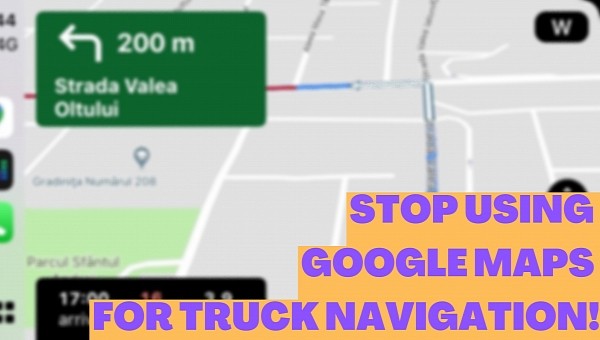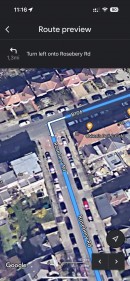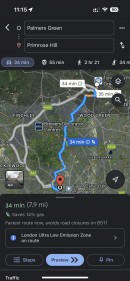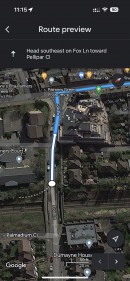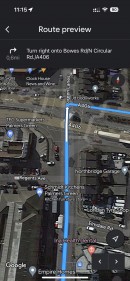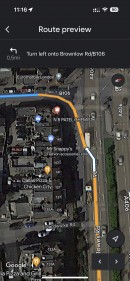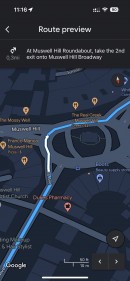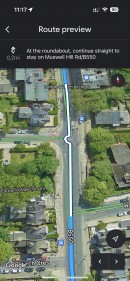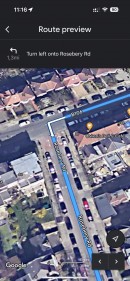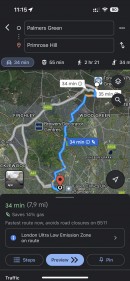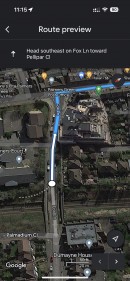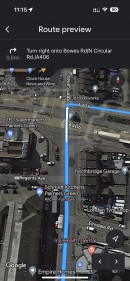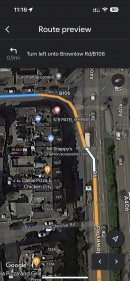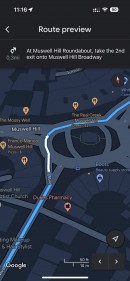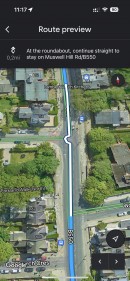Despite not offering a dedicated truck mode, Google Maps, Waze, and Apple Maps are occasionally used by drivers of large vehicles anyway.
This is how lorries and RVs get stuck on roads where the vehicles don’t fit. Because navigation apps don’t take into account vehicle dimensions, they provide route guidance for passenger cars, including routes that feature narrow roads and steep corners.
A route that passes between Stowe and Cambridge occasionally gets blocked after trucks use it to go through the Notch. Navigation apps send vehicles on this route, but because of the narrow road, trucks and buses can’t go through.
Authorities have already closed the road to large vehicles.
Now, the local officials have proposed a bill that would fine navigation software developers, including Apple, Google, and TomTom, for not warning motorists that the road is closed for trucks. The S.77 bill is meant to catch the attention of these companies, especially as most have allegedly ignored requests to update their sat-nav solutions.
Google has reportedly reached out to the Agency of Digital Services recently specifically to improve its navigation software in the region.
Authorities claim that dedicated truck navigation solutions don’t send drivers on the road. The free apps, on the other hand, do this, so a $2,000 fine should serve as an incentive for the parent companies to update their solutions.
On the other hand, such a fine doesn’t make much sense.
Google and Apple would be fined because drivers don’t know how the navigation apps work and how to use them correctly.
Google Maps and Apple Maps do not provide navigation guidance for larger vehicles. Truck drivers who ignore this critical detail most often use navigation solutions from Google and Apple to beat traffic jams and reach their destinations faster. As such, the developing companies aren’t the culprits here, but the drivers who misuse the apps.
Vermont authorities have already started fining drivers for blocking the road. In 2022, it doubled the fine to $4,000, hoping truck drivers would pay more attention to traffic signs and stop following the sat-nav blindly. Five lorries still ended up getting stuck on the Notch last year.
The best thing Google and Apple can do is to update their apps to make it clearer they shouldn’t be used for truck navigation. Most of the drivers who got stuck on the Notch blamed their sat-nav software, and this is why authorities believe that Google and Apple could help prevent such incidents.
Apple has so far remained tight-lipped on the proposed bill. Google is believed to already be working with the local authorities on updates that would make their way to Google Maps and Waze, but so far, no official comments on the talks have been offered.
A route that passes between Stowe and Cambridge occasionally gets blocked after trucks use it to go through the Notch. Navigation apps send vehicles on this route, but because of the narrow road, trucks and buses can’t go through.
Authorities have already closed the road to large vehicles.
Now, the local officials have proposed a bill that would fine navigation software developers, including Apple, Google, and TomTom, for not warning motorists that the road is closed for trucks. The S.77 bill is meant to catch the attention of these companies, especially as most have allegedly ignored requests to update their sat-nav solutions.
Google has reportedly reached out to the Agency of Digital Services recently specifically to improve its navigation software in the region.
Authorities claim that dedicated truck navigation solutions don’t send drivers on the road. The free apps, on the other hand, do this, so a $2,000 fine should serve as an incentive for the parent companies to update their solutions.
On the other hand, such a fine doesn’t make much sense.
Google and Apple would be fined because drivers don’t know how the navigation apps work and how to use them correctly.
Google Maps and Apple Maps do not provide navigation guidance for larger vehicles. Truck drivers who ignore this critical detail most often use navigation solutions from Google and Apple to beat traffic jams and reach their destinations faster. As such, the developing companies aren’t the culprits here, but the drivers who misuse the apps.
Vermont authorities have already started fining drivers for blocking the road. In 2022, it doubled the fine to $4,000, hoping truck drivers would pay more attention to traffic signs and stop following the sat-nav blindly. Five lorries still ended up getting stuck on the Notch last year.
The best thing Google and Apple can do is to update their apps to make it clearer they shouldn’t be used for truck navigation. Most of the drivers who got stuck on the Notch blamed their sat-nav software, and this is why authorities believe that Google and Apple could help prevent such incidents.
Apple has so far remained tight-lipped on the proposed bill. Google is believed to already be working with the local authorities on updates that would make their way to Google Maps and Waze, but so far, no official comments on the talks have been offered.
